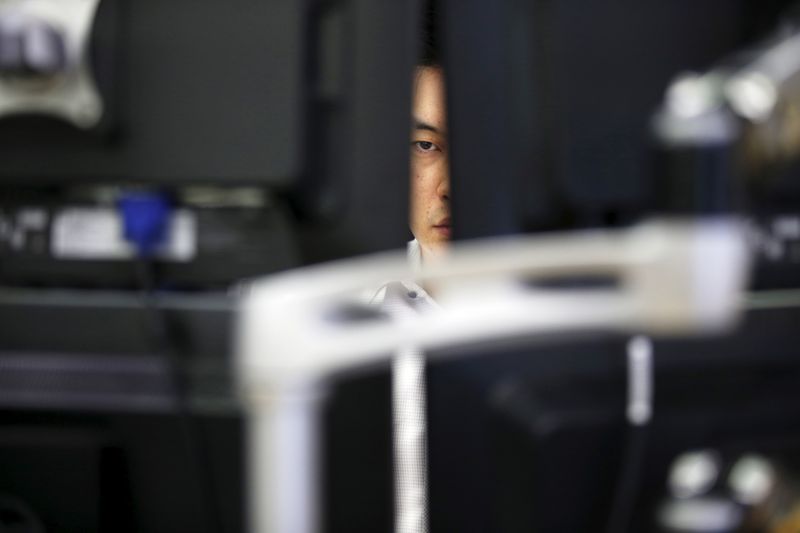By Jihoon Lee
SEOUL (Reuters) -South Korea's stock market marked its worst session since the global financial crisis of 2008 on Monday, with trading curbs activated for the first time in four years, as tech stocks slumped amid U.S. recession fears.
The benchmark KOSPI stock index ended the session down 8.8% at 2,441.55, its biggest percentage fall since Oct. 24, 2008.
During the session, the KOSPI fell as much as 10.8%, triggering circuit breakers for the first time since March 2020, which are trading curbs activated when the index falls or rises more than 8% and halts trading of stocks and derivatives for 20 minutes.
The KOSPI was down more than 14% from a six-month peak of 2,860.42 hit in July.
Chip heavyweights Samsung Electronics (KS:005930) and SK Hynix lost 10.3% and 9.9%, respectively, tracking heavy losses on the Philadelphia Semiconductor Index.
"The market has entered territory of extreme fear amid a slump in U.S. big tech stocks, worries about a slowing U.S. economy and sharp declines in Asian markets," said Kim Dae-jun, analyst, Korea Investment Securities.
In the broader Asian market, the MSCI Asia Pacific ex-Japan Index fell more than 2%, while Japan's Nikkei dropped 12.4%.
Earlier in the day, South Korean authorities issued several comments to calm investor sentiment, with the finance minister vowing to respond to heightened market volatility according to a contingency plan.
The U.S. stock futures fell more than 2% in Asian trading hours on Monday, after steep declines last Friday on weak employment data that heightened fears of the labour market deteriorating and potentially making the economy vulnerable to recession.

The South Korean won weakened more than 1% on Monday, from a two-month high hit on Friday, as foreigners sold local stocks worth 1.5 trillion won ($1.09 billion) in their biggest sell-off in 2-1/2 years.
($1 = 1,371.8200 won)